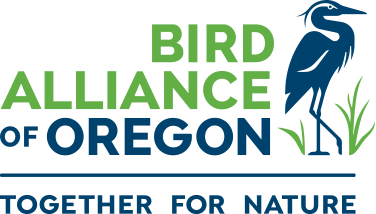FEMA Floodplains
One of the biggest threats to the safety of our communities and the health of our environment is ongoing destruction and development of floodplains.
Floodplains are the areas adjacent to rivers and streams that are subject to periodic flooding. They clean and cool our water, provide valuable fish and wildlife habitat and protect our communities from flooding. In an age of climate change, protecting floodplains is all the more important.
Unfortunately cities across the Metro Region and Oregon continue to develop floodplains at an alarming rate.

In 2009, Bird Alliance of Oregon, Northwest Environmental Defense Center, National Wildlife Federation and the Association of NW Steelheaders, represented by Earthrise Law Clinic brought a lawsuit against the Federal Emergency Management Agency (FEMA) suit arguing that FEMA was the Endangered Species Act by failing to consider the National Flood Insurance Program’s (low-cost federally subsidized flood insurance administered by FEMA to cover risks incurred through construction or rebuilding in areas prone to flooding) role in fostering development in floodplains and thereby harming federally listed salmon and steelhead. Under the terms of the settlement in this case, FEMA agreed to enter into consultation with the National Marine Fisheries Service (NMFS), the federal agency responsible for overseeing recovery of listed salmonid species.
In 2016, NMFS released a biological opinion which found that the FEMA must change its implementation of the National Flood Insurance Program in Oregon to better protect imperiled salmon, steelhead and Southern Resident Killer Whales. In its biological opinion (BiOp), NMFS concluded that FEMA’s flood insurance program violates the Endangered Species Act by subsidizing development in floodplains that jeopardize the continued existence of salmon, steelhead and Southern Resident Killer Whales and adversely modifies the designated critical habitat of anadromous fish species in Oregon. The BiOp includes a list of reforms FEMA should implement that will not only protect federally listed salmon, steelhead, and killer whales but will also reduce flood risks to people and property.
Despite the importance of protecting floodplains, FEMA’s implementation of the National Flood Insurance Program has promoted development in floodplains that places wildlife, people, and property at risk. The NFIP program identifies 251 communities in Oregon as flood-prone. These communities have experienced damaging floods in 41 of the last 53 years; since 1995, there have been 12 flood related presidential disaster declarations in Oregon. Since 1978, Oregon has had 5,299 flood claims under the National Flood Insurance Program totaling more than $91 million, costs that were directly borne by taxpayers. Oregon currently has more than 31,600 flood insurance policies in place totaling more than $7.5 billion dollars.
The BiOp recommends a series of significant changes to the National Flood Insurance Program in order to comply with the Endangered Species Act and ensure that the NFIP program does not push listed salmon, steelhead and killer whales closer to the brink of extinction. The new guidelines tie eligibility for federal flood insurance subsidies to better protection for floodplains, including restrictions on development in floodplains, strong mitigation requirements when development does take place in these areas, and new reporting requirements to ensure compliance.
The BiOp will not prevent floodplain development altogether, but it will provide local jurisdictions with strong incentives to reduce unwise floodplain development, as well as to mitigate impacts when construction does take place in floodplain.
Bird Alliance of Oregon’s Work to Address Floodplains
- We are working to promote implementation of the BiOp locally and in communities across Oregon.
- We are actively working with local and national partners to fend of efforts to weaken the BiOp through legislation
- We are intervening in lawsuits aimed at reversing the BiOp and allowing irresponsible development in floodplains
- We are actively tracking individual projects to ensure that they comply with the BiOp
How You Can Help
- Become a Bird Alliance of Oregon Activist
- Track projects in your community that are occurring in floodplains
